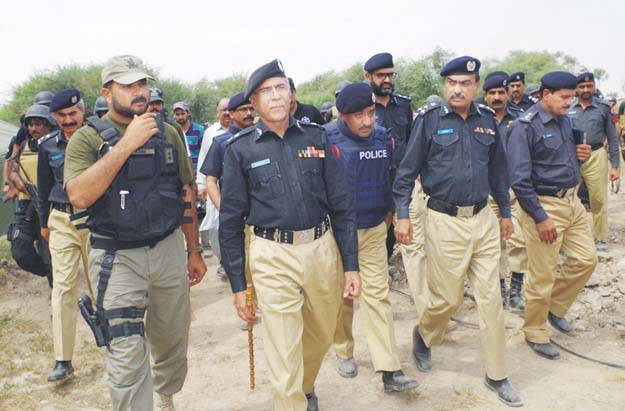For more than two weeks, the Punjab police stood in front of television cameras from the Katcha area, where the notorious ‘Chotu’ gang had dug themselves in on an island, after imposing a reign of terror in a large swathe of territory. This area had become a no-go zone for law enforcement elements. The rhetoric by the provincial law minister, that there were no such areas in Punjab and praise for those taking part in the operation, was belied by images of inadequately outfitted police personnel fumbling with heavy weapons, which refused to fire.
This inadequacy turned to incompetency with the news that some elite force members had lost their lives during the conflict and a number of policemen had been taken hostage – all pointing to the fact that in reality, the police operation had dismally failed. It was in consequence of this that the Army was called upon to take over the battle and bring the culprits to justice.
In a mere span of three days, the Army forced the gang to surrender unconditionally, recovered the hostages intact and returned government writ to the area. All this was done without any harm to more than two hundred women and children that comprised families of the men entrenched on the island.
I have often written pieces on the state of our police and it’s unprofessional, politically appointed, corrupt rank and file. While we mourn the loss of the courageous elite force members, the Chotu gang incident is more than ample proof of the rot that riddles our prime civilian investigation and law enforcement instrument. The arrested gang members are now in Army custody for detailed interrogation, which may open a Pandora’s Box implicating some big names and bringing more embarrassment to the government. In this context, it is interesting to note the silence of those provincial entities, who had so vociferously spoken about the non-existence of no-go areas and heaped praise upon their law enforcement capability.
What is of concern to every informed citizen, is the understanding that it is not the Army’s role to carry out an operation, which in any other country would have been successfully undertaken by the police or its SWAT teams. The fact that the job was speedily and professionally brought to its logical conclusion brings up the notion that perhaps our police should be placed under command of the Army, similar to the structure that is prevalent amongst some South American states.
Another school of thought is not comfortable with the aforementioned idea, but suggests a much broader relationship, wherein the police should be reorganized on the lines of the Rangers and designated as a federal institution with a peering relationship with the government on lines similar to that of the Armed forces. The proponents of this point of view insist that the state of our police has reached a stage, where such radical measures are urgently needed.
As someone, who has done extensive research on police reforms during a long academic career, I am plagued by two nagging questions before subscribing to such notions. Will a change in articulation be accepted for legislation by the political government, in the knowledge that this will deprive politicians of a potent tool for extension and maintenance of local power in order to achieve dubious ends? The second concern stems from the possibility of any negative sympathetic professional effects on the Army, in case such a notion is implemented.
Whatever be the case, the time has come for the nation to demand a complete restructuring of our civilian law enforcement system including de-politicization, articulation, training and recruitment. The most practical method to proceed with this exercise is to formulate a study group consisting of all direct and indirect stake-holders i.e. competent police officers, representatives of the Armed Forces, senior judiciary and credible members of civil society. This must be followed with implementation of the group’s recommendations on urgent footing (to be ensured by our Apex Court). As far as every patriotic Pakistani is concerned, it is now a question of ‘now or never’.






